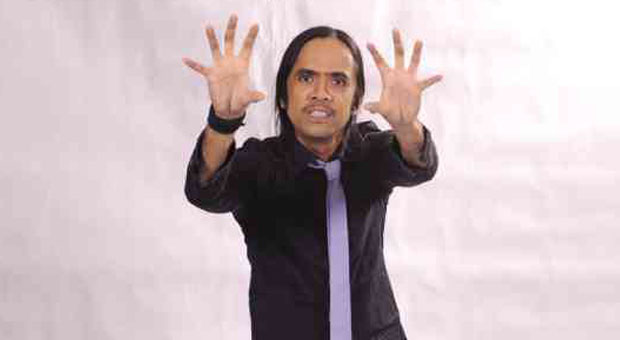From the very start of the “Funny One” contest for new comedians on “It’s Showtime,” Ryan Rems (Sarita) was, in our view, a frontrunner. His victory a few weeks later was therefore—a foregone conclusion.
What made him such a clear standout? He was one of three “masa representatives” who set the tone for the tilt by giving voice to streetwise urban Pinoy survivors’ funny-pathetic thoughts and feelings. —Huh? Where did that come from?
In addition, Ryan’s little group of downbeat-funny survivors cracked jokes from the “rebel” perspective of addicts and shady guys on the lam. —Not that they were all that sinister themselves, they could just have been role-playing for “knowing,” comedic effect and to connect with the huge, streetwise mass audience of other urban survivors out there. —But, then again, who really knew where they were coming from?
The point is, this small comedy clique within the tilt’s group of 10 finalists set the tone for the entire competition, giving it a unique flavor, tang and tinge that got a big, streetsmart response from the viewing populace.
Aside from Ryan, Gibis and Nonong similarly went in for dark, bleak, shady and even “black” humor—a sort of “comedy on the run” (from the law).
Big difference
And yet, Ryan was the clear standout even in this regard. What spelled the big difference and edge in his favor? First, the way he looked, like the dour, unsmiling and silent comedians of yore (think Buster Keaton, Harry Langdon and Canuplin)—he looked sad instead of glad (the height of irony in comedy!) and didn’t have to say a word to communicate a whole lot of desperate or sardonically resigned thoughts and feelings.
And, when he did speak, it was in short, one-sentence set-ups and punchlines, like captions under a funny-pathetic photograph.
Most uniquely of all, what he talked about and found funny was the very stuff of an urban survivor’s life in the big, cold and cruel city’s sinister and lawless underbelly.
Ryan Rems’ dour look is perfectly suited to his downbeat spiels and punchlines, each of them pungent and pertinent. His jokes are funny not just because they’re derived from insightful observations and experiences, but also because they’re strong on contrast and irony—a rarity in our more shallowly “slapstick” comedic “culture.”
Thus, the new comedian has become the fave, not just of the streetsmart punk, but also of the nerd and yuppie, because some of his jokes, when you think about them, make a whole lot of deep sense.
Now that he’s won, the big question now is, what will Ryan Rems do to further his new potentially stellar career? Will he allow mainstream TV to make him a big sensation for six months and then drop him because he’s become overexposed and the thrill is consequently gone?
Or, will Ryan and his advisers realize that a stellar career is fueled by a few, well-conceptualized projects that will reveal the new star’s other strong suits (Ryan can also sing well, for one), and thus keep his career on a long-range, upward trajectory?
